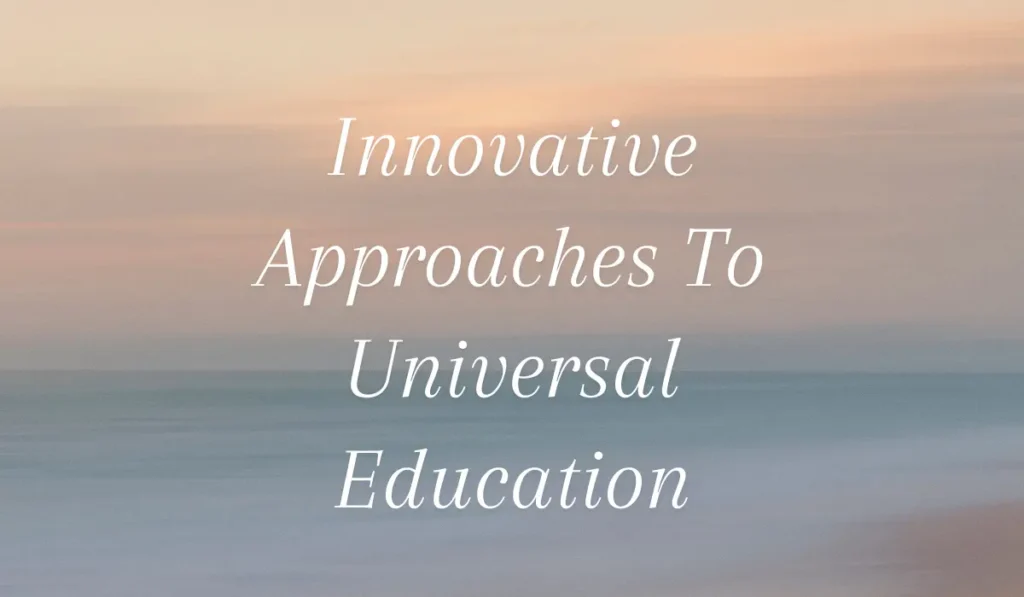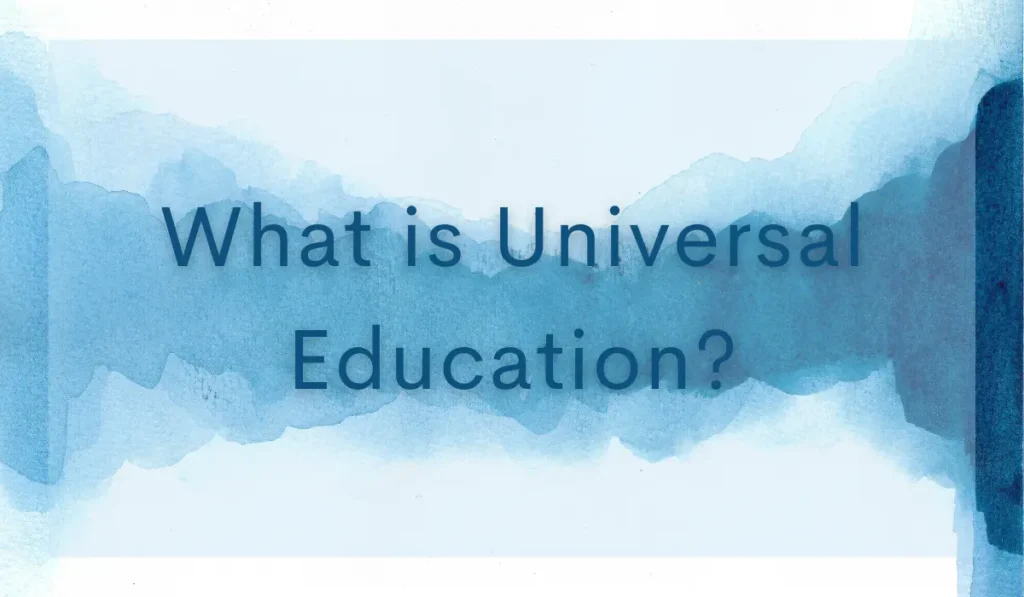Universal education is crucial in ensuring that everyone, regardless of their background, has access to the same opportunities and will lead to a more equal society.
Education provides the necessary tools needed for individuals to succeed and contribute positively to their communities.
The goal of universal education extends beyond just giving people access to academic knowledge but also includes instilling values, promoting critical thinking, and preparing individuals to tackle real-world challenges.
Achieving universal education is a vital step in creating a more just and equitable world.

Credit: www.journalofdemocracy.org
Why Universal Education Matters
Universal education is crucial for the development of any society. It allows individuals to access knowledge and acquire the skills necessary for personal growth and success.
The need for universal education is urgent, especially in developing countries, where it can help reduce poverty, and inequality, and promote economic growth.
The benefits of universal education extend beyond the individual to society at large, including improved health, social cohesion, and a more informed citizenry. Despite progress on the global scene, many challenges remain, such as inadequate funding, lack of access, and poor quality education.
Universal education is a basic human right that must be accessible to all, regardless of their social status. It is essential for building a more equitable, inclusive, and sustainable world for future generations.
Addressing Universal Education Challenges
Bridging the education gap to achieve universal access requires addressing several challenges.
- Educational disparities, particularly in developing countries, serve as significant barriers.
- Governments and NGOs must prioritize investing in education, particularly for girls, disadvantaged children, and children with disabilities.
- Bridging gaps in education also requires efforts towards improving the quality of education. This entails the provision of qualified teachers, teaching and learning materials, and conducive learning environments.
- Global initiatives such as the Education For All movement and the sustainable development goal on education can also support universal education.
Achieving universal education is crucial for creating a more equitable society and promoting economic growth.
Innovative Approaches To Universal Education

Innovative approaches are transforming education to make it universally accessible.
Technology has become a powerful tool, enabling learners worldwide to access educational resources.
Community-led education programs also play a vital role in enhancing inclusivity, addressing educational disparities and meeting the evolving needs of society.
Microlearning has emerged as an alternative to traditional classroom-based approaches, facilitating flexibility, personalized learning, and cost-effectiveness.
As systems continue to evolve, bringing in new paradigms aimed at making education more accessible and inclusive. There is a growing need to leverage these approaches and tools to empower learners, regardless of race, culture, or location, and enable them to participate fully in the global community.
Empowering Marginalized Communities Through Education
Empowering marginalized communities through education is a key step towards a more equal society.
Girls education is particularly crucial as it benefits not only the girls themselves but also their families and communities.
Additionally, education for refugees can provide a path towards a better future, allowing them to contribute to society and integrate into their host communities.
Indigenous education and empowerment are also important, as they recognize the unique cultures and perspectives of indigenous communities and provide them with the tools to succeed.
By promoting universal education, we can create a brighter and more equitable future for all.
Frequently Asked Questions
What Is Universal Education?
Universal education refers to providing education to all people irrespective of their race, gender, or economic status.
Why Is Universal Education Important?
Universal education plays a crucial role in fostering economic growth, reducing poverty, promoting gender equality, and achieving sustainable development.
What Are The Benefits Of Universal Education?
Universal education helps individuals acquire knowledge and skills, boosts productivity, promotes innovation and creativity, enhances social mobility, and contributes to building peaceful societies.
Conclusion
Education is more than a key to knowledge; it is the tool for social progress, economic development, and individual prosperity. A universal education system is the driving force that can help individuals, societies, and nations to achieve unprecedented heights of excellence and progress. The power of education cannot be underestimated as it has the potential to empower individuals to create, innovate and lead the world into a great future. As the world continues to evolve, so too must the way we educate. A more inclusive and diverse education system is necessary to embrace the constant changes in our world.
We must strive for a system that offers equal opportunities to all, irrespective of their background, to make a positive impact on the world. Universal education is the must-have for any society that wishes to thrive, and it is our responsibility to ensure that everyone has access to a comprehensive and quality education.


